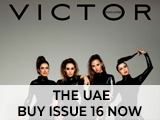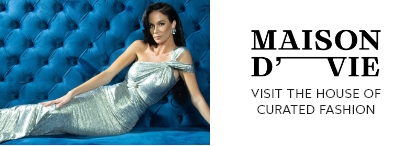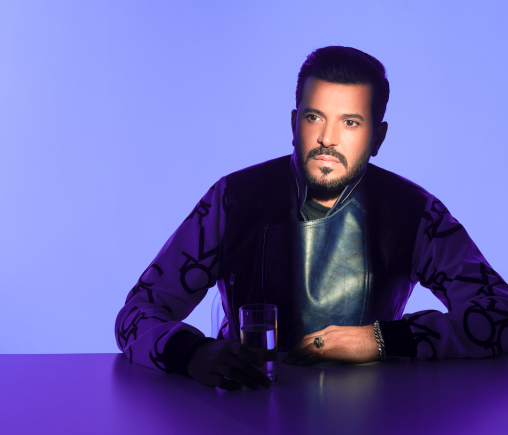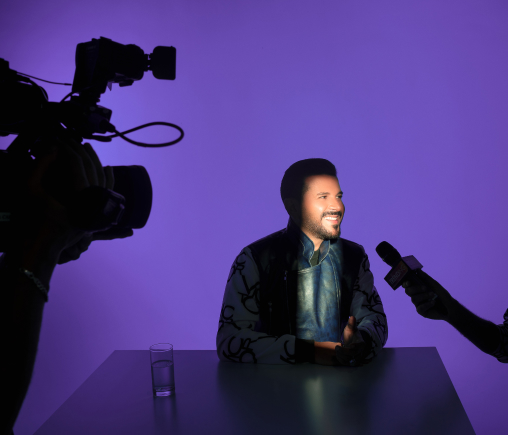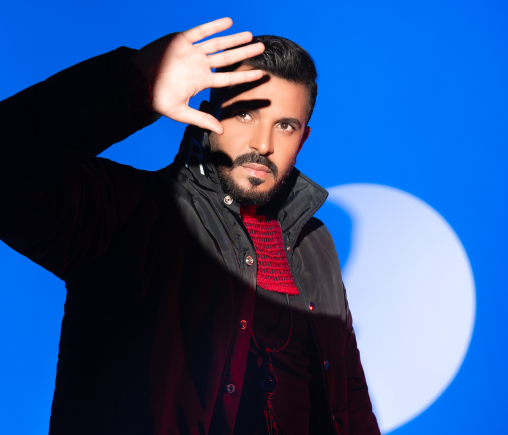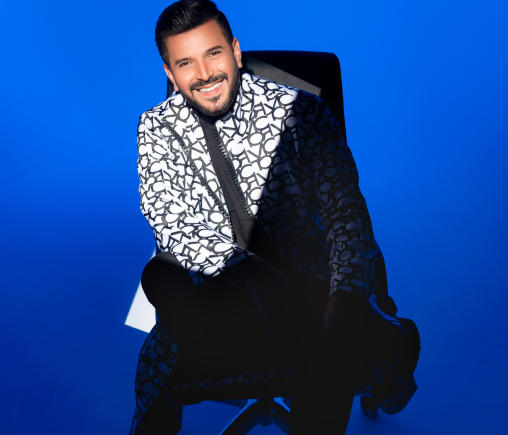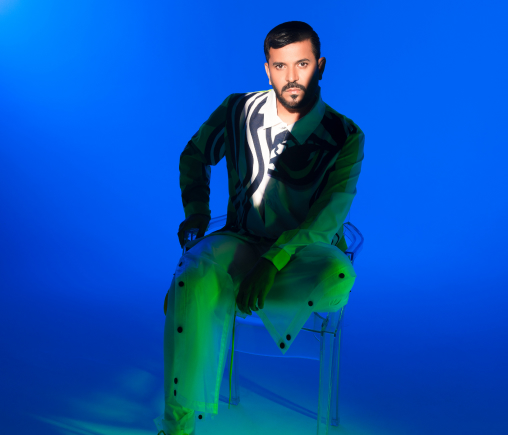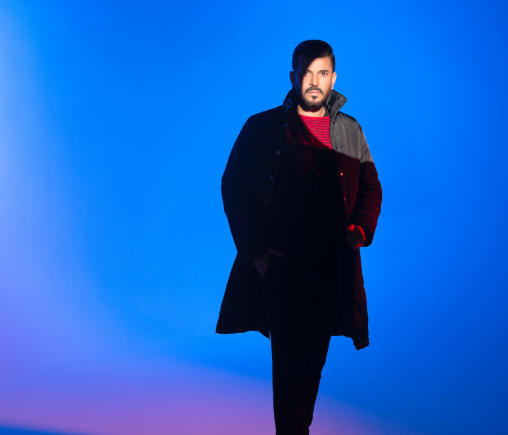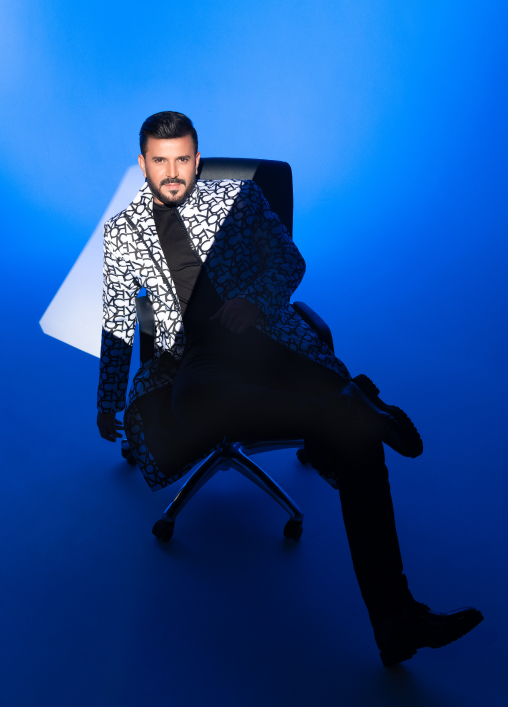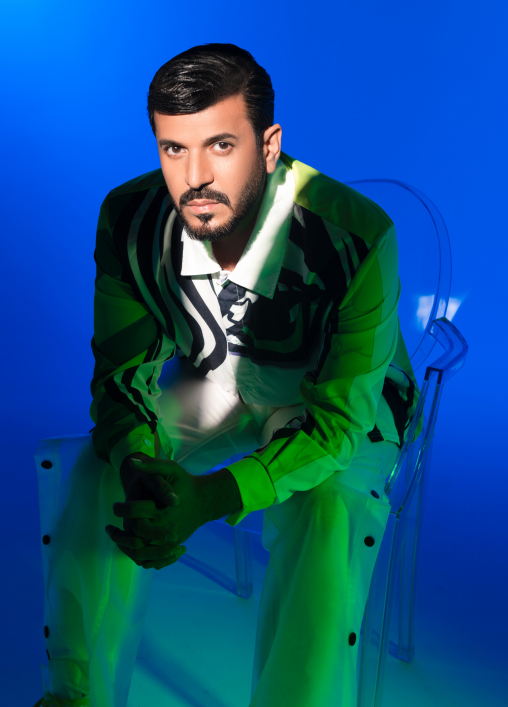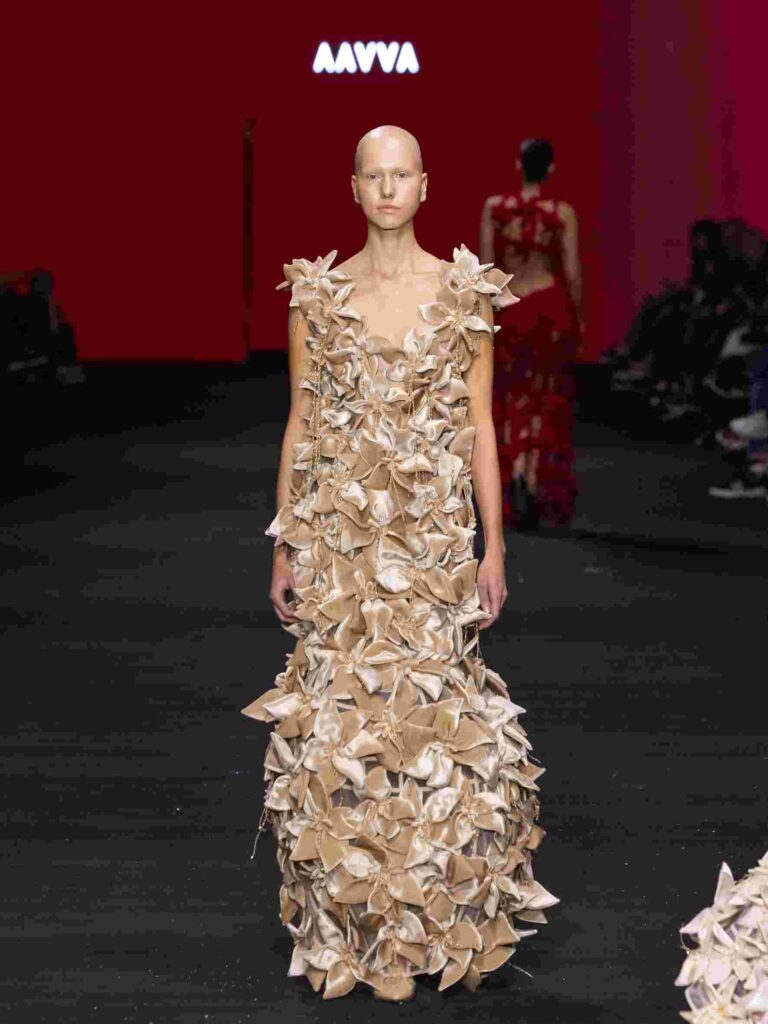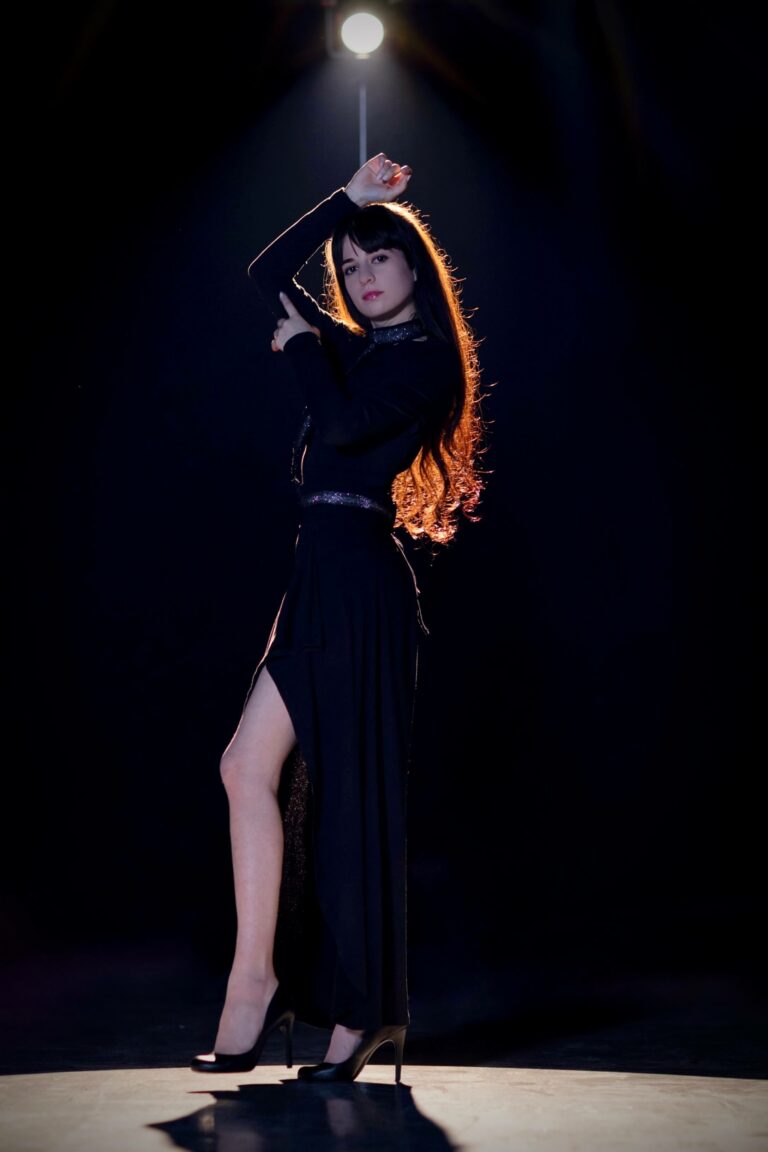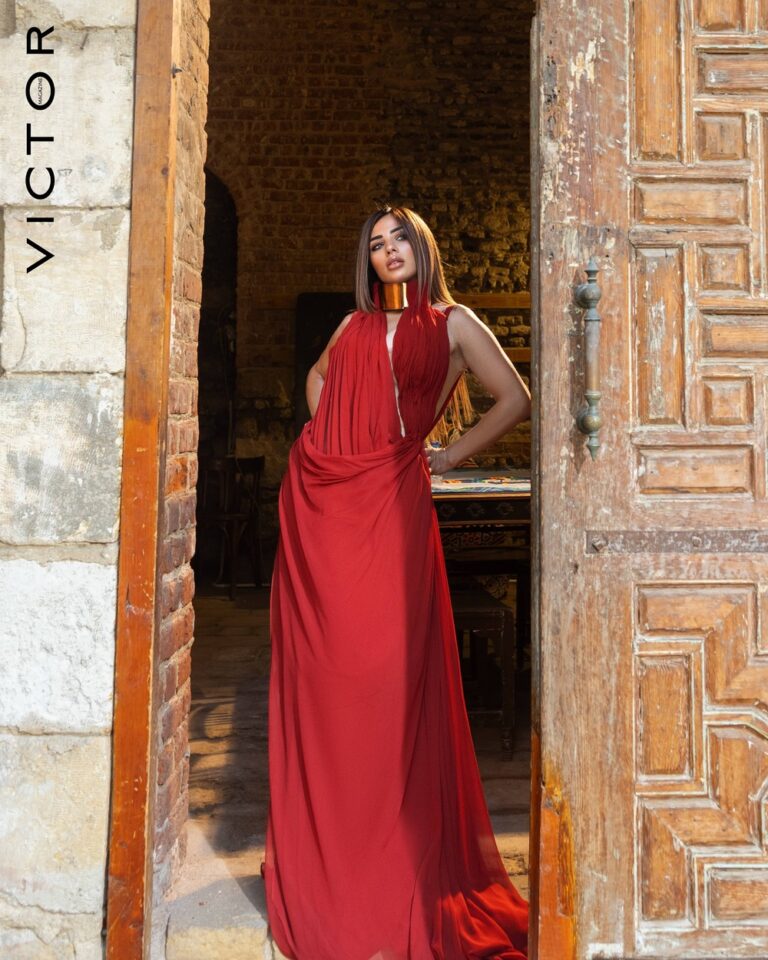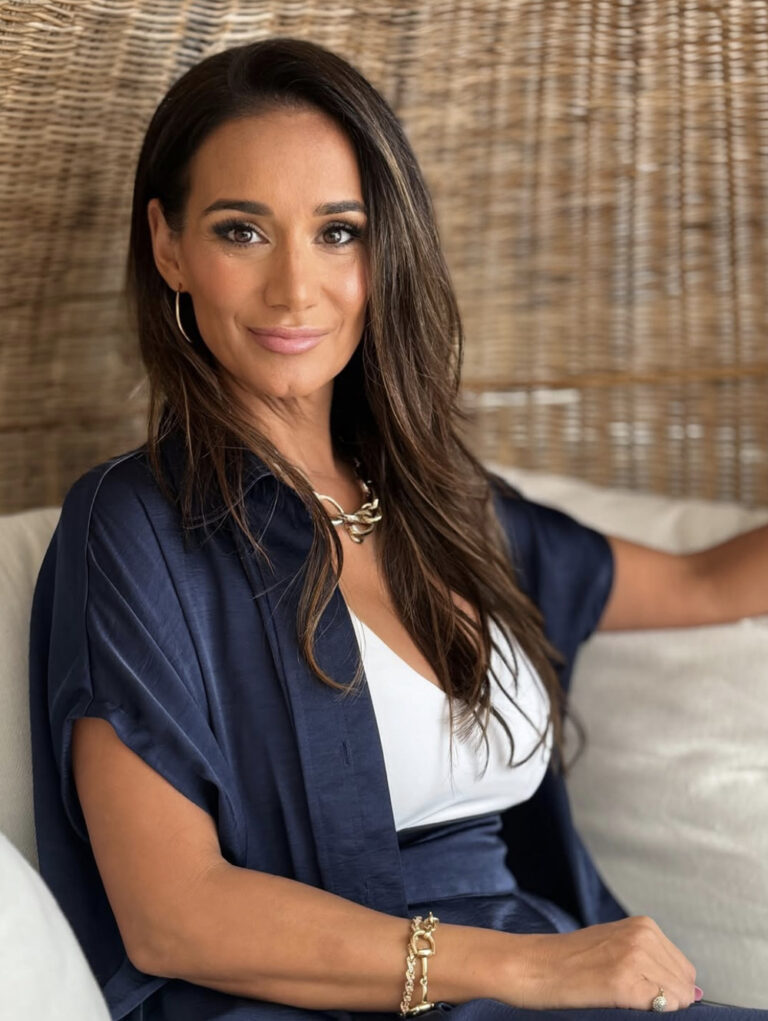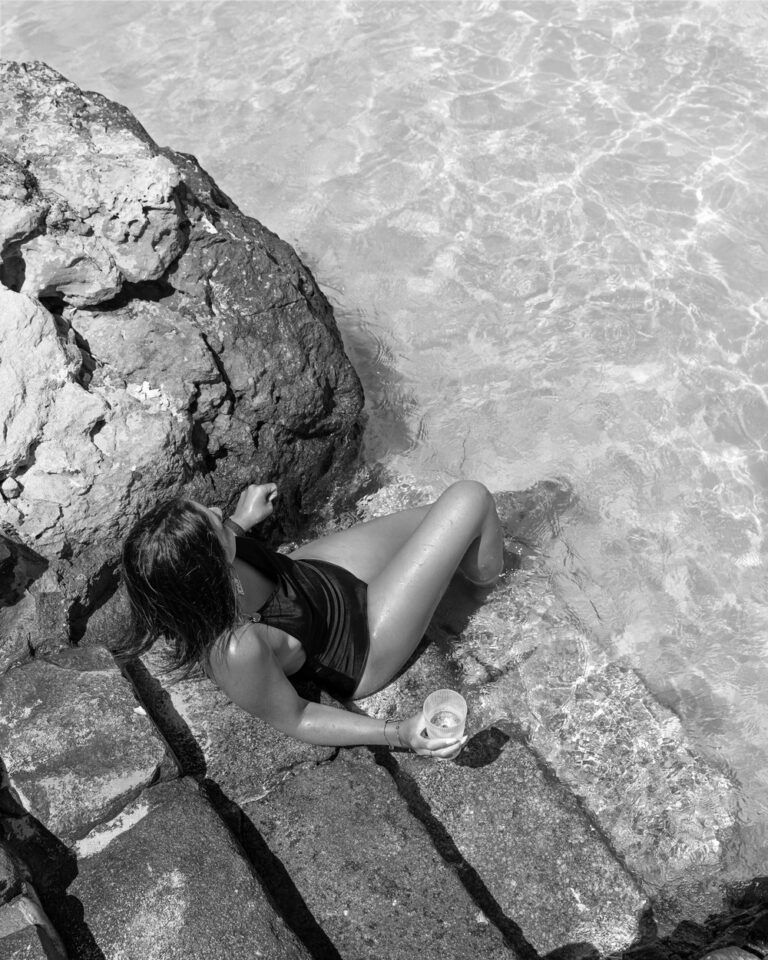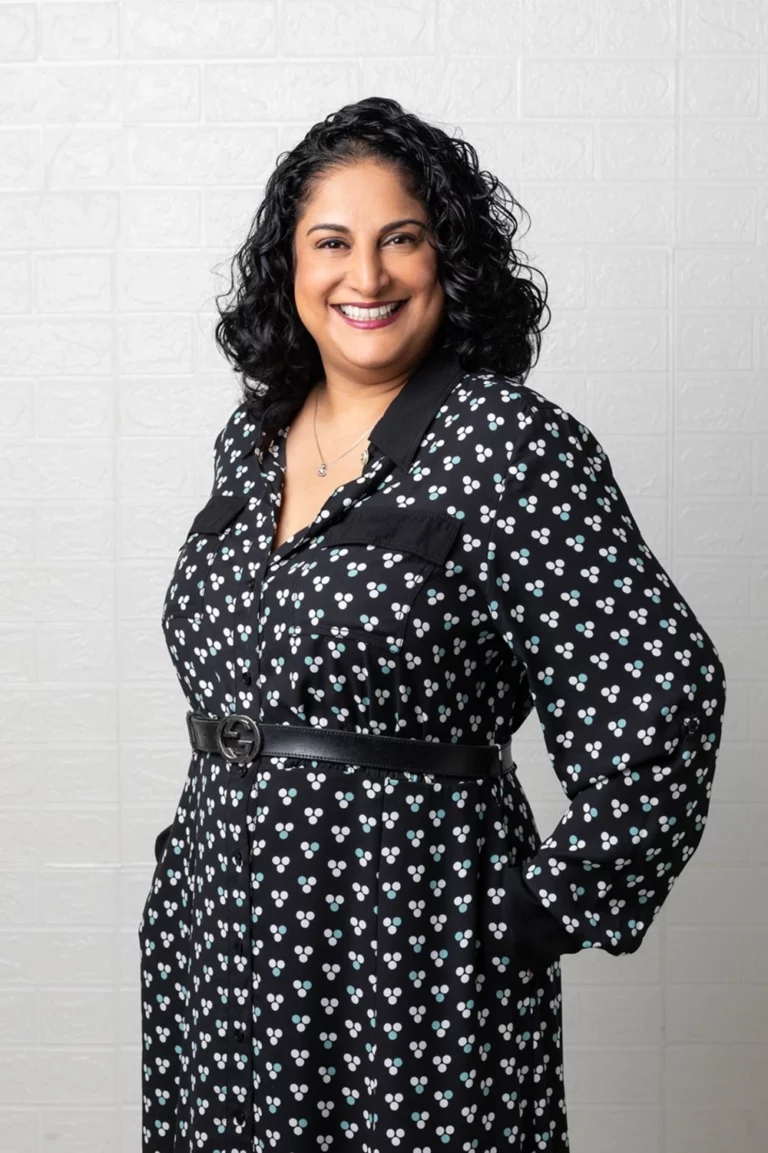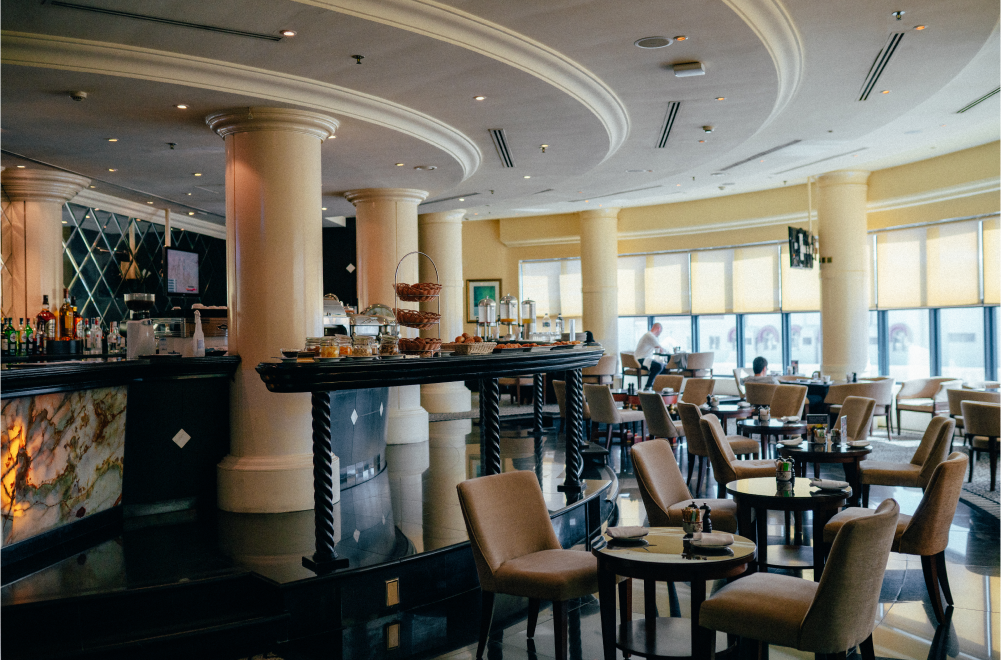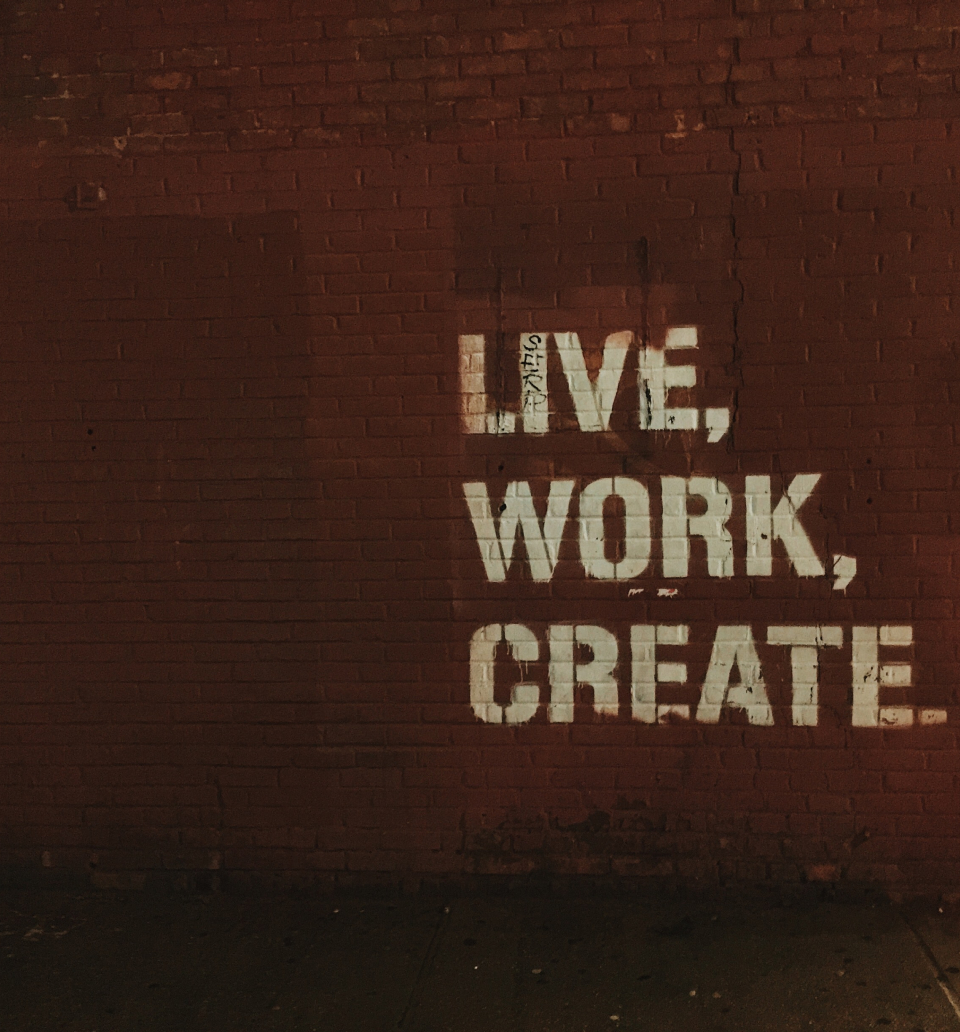
Subhy Otry Interview-ology
Remon Victor Farag
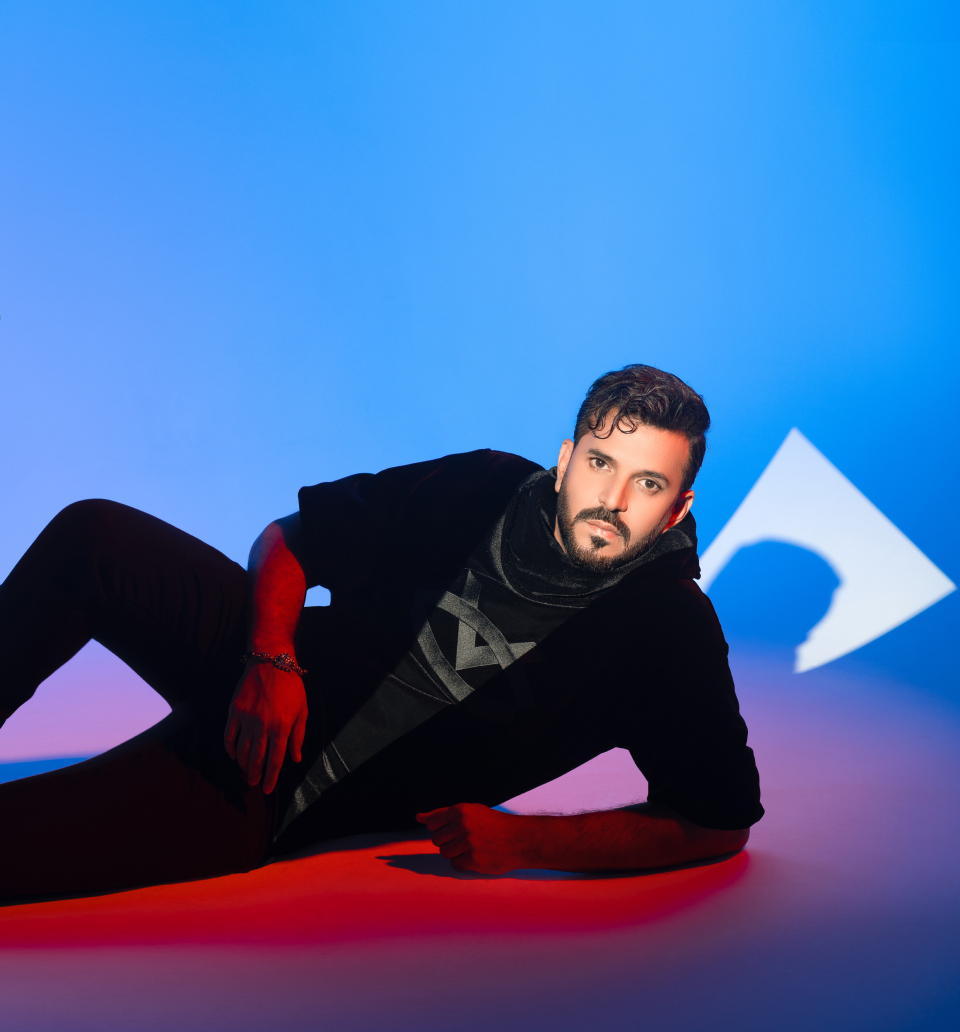
- Photo by: Jef Anog
The cover star of this issue is really a rich character and an experienced content creator. Born in Aleppo, Syria and graduated in Aleppo University, Subhy Otry is a renowned name in today’s Arab media world. He has extensive experience as an actor, journalist, and program presenter has enabled him to gain a lot of knowledge and friendships in the field. He worked as a journalist in a number of Arab magazines and newspapers, then he turned to television work in early 2007 for Rotana Khalejia channel and currently he is in MBC presenting the well-known program “MBC Trending”. In this interview, Subhy took us on a journey into his world and told us untold stories and situations he has experienced during his exciting career.
- In all of your career, you have always been a content creator. To what extent do you think media content creation affects people’s attitudes and behaviours?
Before answering this question, I would like to first clarify that not all personnel working in media are producers or editors i.e., some TV hosts do not usually write the content they read but the producers and/or the editors of the program provide for them what they say to some extent. On the other hand, there are interviewers and anchors who have to, necessarily, intervene with the content they provide in cooperation with the rest of the crew. TV presenters who just appear on TV reading what is provided to them to read almost have no direct influence (from themselves) on the audience. For example, my episode “Subhi Reveals” that I present; I personally prepare it in every aspect and choose the subjects, the words and how to present it generally. Choice of words is pivotal for impressing the audience and accordingly having their attention. I know by fact that nowadays the trend is for quick and light content that almost has no content! I try to make a difference here and provide proper content in a way that captures my audience’s attention and interest which is actually a challenge. Besides being a TV presenter and anchor, I am also a writer and poet; this assists me with presenting interesting content. I also utilize visuals to engage more with the viewer therefore the views for my episode are usually very high.
Now back to your question, it is very important for anyone who works in media to read what they prepared before reading it out to the public and think how that would influence the audience. One word can change the whole context of the message they are delivering. It is important to have one’s own censorship mechanism besides that of the producers. You always have to monitor your own self. You always need to include all opinions and views in the subject you are discussing to make the majority of your audience feel included and recognized.
I do not agree with the opinion that the media is responsible for spreading crime or any specific negative behaviour in society. When the media sheds light on a crime for example, it discusses it, but it doesn’t commit it … it is very important to remember that. Media discusses crimes that have already happened or behaviours that have already spread. Media does not create something that has no existence in society already. If the current accusation to media and content creators that they are inducing specific negative behaviours in the society is correct, why haven’t the same type of crimes and negative behaviours spread since the sixties of the last century? Do you remember the movies at that time especially in the Egyptian cinema industry … crime of all types was depicted in the movies, but the society was not as today. There are other major factors that affect the society’s attitude and behaviour like education and upbringing … the atmosphere of the household plays a major role in drawing one’s behaviour and attitude rather than what they watch on TV and read in the papers. Furthermore, the media can have a vital role in the protection of society. During the COVID-19 lockdown, it was the media that spread knowledge and awareness from the official sources to guide people all around the world towards what they should do and how to protect themselves. Think about what would have happened to the world if the media was not responsible enough and if the right guidance was not provided through media. Not just COVID, the media is also playing a major role in spreading the word about sustainability and clean energy which is becoming a necessity nowadays with the climate change dangers escalating day after day. People would have never known how to apply sustainable solutions to their everyday lives if it was not for the media.
However, there is a very delicate matter that I would like to clarify in this context, as I said before, media has the obligation and responsibility to tell the public and the viewers about what is happening and what is trending whether this is good or bad (in the TV presenter’s point of view or even in the layman’s point of view). If I am speaking about a specific video clip that I know contains some immoral scenes or explicit lyrics, I would speak about it if it is really spreading and trending (because I have to), however, my responsibility also is to say all opinions about that clip and clarify that some people see it as immoral and not suitable. By doing this, I would have fulfilled my responsibility in telling my audience about what is happening and my responsibility for sharing various critics about that content that would actually correct the influence of that video clip. Please note that before I speak about negative or harmful content, that content has already spread and has already become a trend – so I am not actually promoting it in speaking about it because it’s already out there.
One last thing I would like to say on this question, not all famous people are famous for good deeds. Remember that criminals are also famous, but their fame isn’t for the good, it’s bad fame. On lighter levels than crime, some public figures became known because of the negative content they promote … They work on seeking people’s attention to the non-useful or otherwise negative content they post to grow their pages … those are not content creators and not public figures in the correct context.
- Do you think that content creators should change their strategies and the content they present depending on the latest international or local developments like the eruption of wars overseas?
I think that content creators should be mindful of people’s general feelings at times of difficulty and crisis, but I do not agree that content creators should change or stop what they do because of war or pandemic or any other crisis. In fact, I believe it is necessary for content creators to continue providing their content so that people can distract a bit from the negativity imposed by the news … if someone wants to watch the news, they simply can’t watch news channels but content creators presenting art, fashion, music, and entertainment generally should not stop or limit what they present on account of any crisis. I repeat; content creators should be mindful and respect people’s feelings by saying a few words or tweaking the content a bit to cater to the current situation … but never change or stop. I will give you an example on that subject; remember during the lockdown when Elissa issued her song and the video clip showed her in video call with Haifa Wehbe? That was really uplifting and necessary for people at the time … the clip showed Elissa staying at home (as encouraged by the authorities) and doing a video call with Haifa which most people were doing to get their work done … it was an uplifting and cheering content that still recognized the current situation of COVID and lockdown.
- In one of your previous interviews, you said you would consider acting if you read a role proposal that fits you or “looks like you” what would that role be?
I have been a theatre actor since I was thirteen and until twenty-seven … I love acting, but when I started working in TV as an anchor, I didn’t want to do both and my career as an anchor was progressing very well, so I chose to carry on with that. In the UAE, where I live, the major concentration in media production is basically on TV programs rather than on drama. Ideally, I would participate as an actor in a Syrian production but drama production in Syria has declined due to the situation there … I can also master the Egyptian accent but have seen no suitable roles so far that I can accept. Picking a role is very tricky because a wrong choice can negatively affect my successful career as a TV anchor … I have refused numerous acting proposals before because they were not suitable or would not provide the impact I have in mind … one of the roles I turned down was a role in a history drama production. I would consider a role as Subhy Otri the TV anchor for example … I could also consider a role that shows me a totally different personality that causes kind of a shock to the audience.
- What was the most difficult interview you did in your life and why?
This question reminds me of two interviews: one with George Wassouf and the late Soheir El-Bably.
George Wassouf is a legendary artist, he rarely gives interviews, and he is known to be quite unpredictable during interviews. He suffered from hemiplegia and thankfully recovered from it in 2016. I was scheduled to interview him on the day of his first live performance after his recovery … I was so anxious about this interview because one of the questions I prepared was about whether he thought his image as a superstar would change in the audience’s eyes if he appeared in public on a wheelchair … I was so worried about how he would respond and how he would feel about the question because it is personal and sensitive. I had to ask the question because everyone wanted to know … everyone was asking the question, so I had to ask it. Luckily, he took it lightly and his answer was brilliant … he said, “I am not a dancer, I am a singer … my audience will come to listen to my voice and see me … my movement impairment will not make any difference”.
The interview with the late Soheir El-Bably was also challenging as I was preparing a segment about the history of art and was only given eight minutes to interview her … I have, necessarily, prepared questions about her previous roles but was surprised when she told me at the beginning of the interview: “I do not want to speak about the past” … I was shocked for a moment but quickly thought of a smart trick that would get me the answers I need without asking questions she didn’t want to hear, so I chose a question about a person who was in her life at the time of the interview and asked her “Do you meet with Shadia?” she answered “Yes I do and she still calls me Sokaina” (referring to her role in the renowned Egyptian play of Rayya w Sekina that continuously showed for eight years from 1980).
Editor’s note: Soheir El Bably passed away in November 2021 and Shadia passed away in November 2017.
- Who do you think (among the content creators) bear the biggest responsibility for influencing people’s attitudes and behaviours, actors or journalists or TV presenters?
I believe it’s the writer who writes the scenario for the actor who has a bigger responsibility in this aspect than the actor … similarly, it’s the producer of a TV program who has bigger responsibility than the anchor … whoever writes or directs what is being said to the audience bears bigger responsibility.
- A lot of singers have taken acting roles in TV and/or cinema. What are your comments about these experiences? Who in your opinion had the most successful experience (from signing to acting)?
In the Higher Institute of Dramatic Arts, students are taught about music and singing so it is quite natural for an actor to know how to sing … if an actor has a good voice, he will easily sing and that’s not a surprise. The clearest example on this is Tamer Hosny. Tamer is a singer whose movies are blockbusters. Razan Moughrabi started as a program presenter and also sang some nice songs … it is quite interchangeable, I think. I personally was asked to perform a song before. I was speaking with a composer I know and he was telling me about a new song of his … I heard it from him and thought it could be sung in a different way and sang it to him … he was surprised with my ability to sing and offered me the lyrics and the melody for free. At that time, I considered it seriously and consulted Assala Nasri and Samira Said … Assala told me she’s against the idea because she believes that a singer should not do anything other than singing but Samira Said (who is my best friend) told me “life is short … if you think singing is what you want to do and the song itself fits you then by all means … sing!”
- Tell us about MBC Trending – how do you choose your stories and how do you prepare for the episode?
We meet on a daily basis with all the producers to discuss what’s new and what’s trending and we discuss the sequence based on the importance and based on exclusivity too … Some series being shown exclusively on MBC are always trending. We do not only speak about art and entertainment, but we also discuss society related issues like for example the devastating crime of killing the Egyptian girl, Nayera Ashraf; we covered that issue continuously for a couple of days. MBC trending has also become a platform for hosting emerging new talents that people are developing interest in.
- What is the biggest challenge in the job of the TV presenter?
Impartiality. A TV anchor must be impartial and must put forth all opinions for the audience to know and consider … sometimes though it is difficult to maintain neutrality when the argument being said by the person I am interviewing is clearly mistaken or illogical or immoral. In these situations, I usually say “but that opinion is contrary to a lot of others”. Unfortunately, there are some TV anchors who do not maintain partiality and are well known for having a specific attitude or stand … People know them for that, but they are quite expectable, and this makes their content uninformative and uninteresting.
- Who from the stars that have left our world would you have loved to interview? What would you ask him/her?
Ahmed Zaki – I would have loved to ask him how much his complex roles affected his personal life. Ahmed Zaki is one of these rare talents that makes you 100% believe them in the character they present and that requires a lot of deep involvement in that character which could (very likely) leave a real mark on the actor himself. I am so curious to know his answer to this question.
- What would you say to the Victor Magazine readers and your fans?
I would ask anyone who have just read this interview to read it again and see how much more information he would get after reading it for the first time and how many imprecise ideas they have got after reading it for just once … and that’s why I advise everyone to read and if they read to read more … Reading widens the limits of your mind and makes you open to other opinions and point of views.
By Author

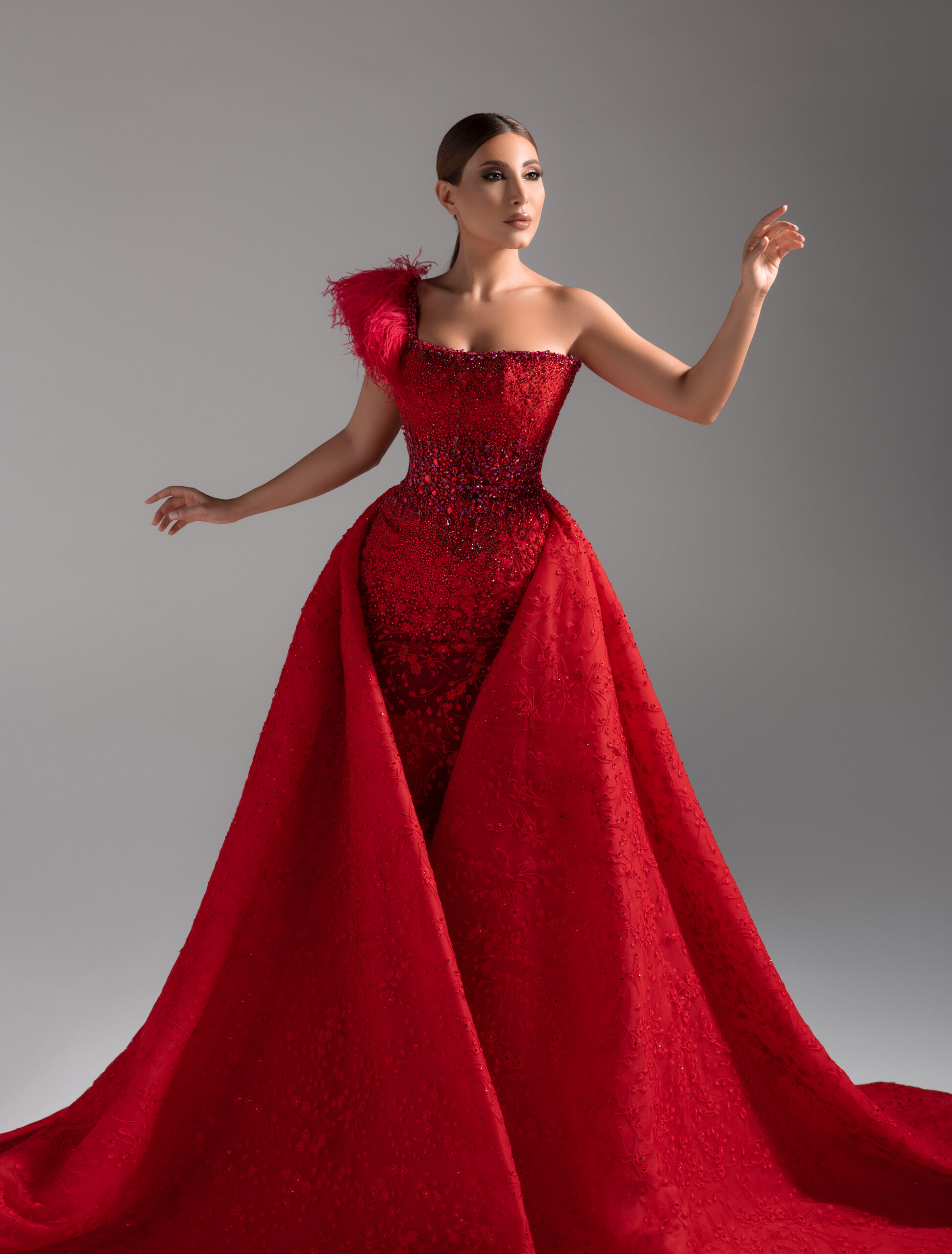
Songs of the Bermuda Triangle : Interview with YARA
no related post found
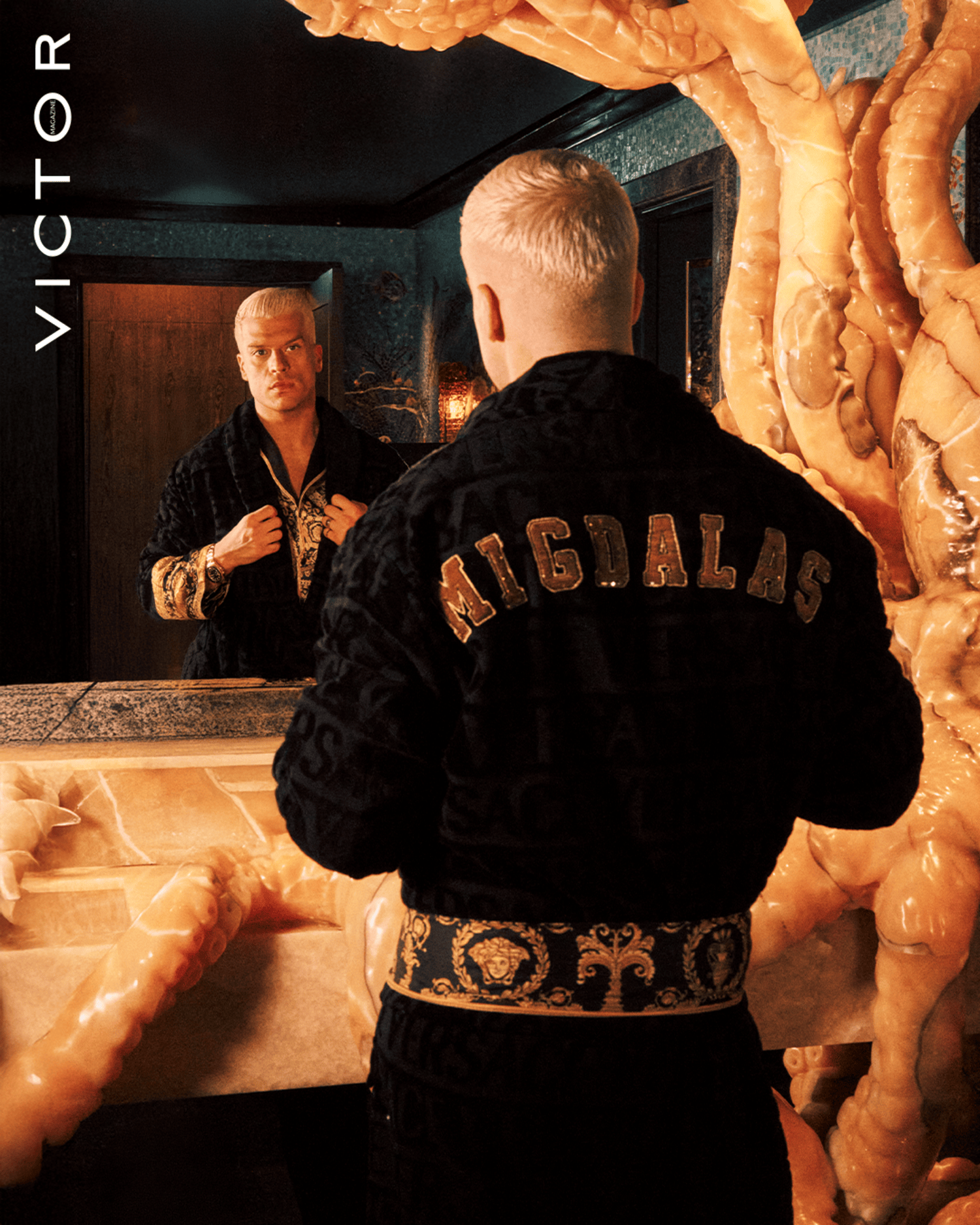
Beyond the Expected: John Migdalas on Today’s Luxury

“Flowers are our favorite F word!”

Indulging in Love and Flavor at Playa: A Valentine’s Day Delight

Beyond the Expected: John Migdalas on Today’s Luxury

“Flowers are our favorite F word!”

Indulging in Love and Flavor at Playa: A Valentine’s Day Delight




